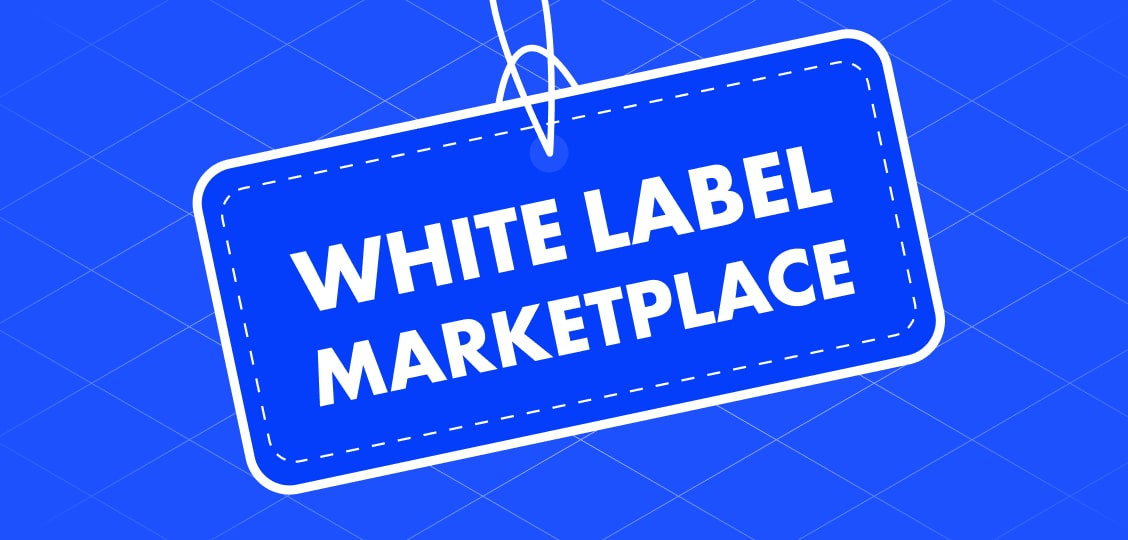Top 6 healthcare technology trends that will dominate the market in 2022
Find out what healthcare technology trends will drive the market this year and learn how you can address domain challenges by using advanced software solutions.

While online marketplace platforms have been witnessing steady growth for years, the COVID-19 pandemic pushed more customers and enterprises to start using them. The popularity of marketplaces is climbing across multiple industries, including e-commerce, education, healthcare, food service, hospitality, freelance, and human resource management.
The shift towards doing almost everything over the Internet has influenced user preferences, creating an increased demand for options to choose between numerous vendors. According to the survey by Mirakl, 70% of respondents around the globe state that digital marketplaces offer the most convenient way to make purchases. In addition, Mirakl reports that virtually 75% of the US power shoppers (buying something online at least once a week) want more of their favorite retailers to have e-marketplaces.
Aiming to adopt the marketplace business model, many brands and institutions are on the lookout for ways to cut release time and expenses while delivering a seamless user experience. If implemented properly, a white-labeling strategy allows for addressing these challenges.
In this article, our software experts will describe the benefits of white label marketplace platforms. But first, let’s consider the meaning of the white label software. Take a look.
A white label marketplace app is developed by a certain company and then is resold to other organizations that rebrand and reuse it. This type of software provides a variety of tools to customize the user interface to existing business requirements and brand style.
For instance, white label marketplace platforms can let you move design elements (icons, buttons, etc.), modify a color palette, change fonts, add logos, etc. However, customization capabilities are still limited in comparison with a tailor-made solution.
Here at Arateg, we also deliver new features if necessary, fully adjusting a software product to the business objectives of our clients. Therefore, you do not have to create a marketplace from scratch, which results in significant time and cost savings. Now, let’s consider the key advantages of a white label marketplace.
In our work, clients often approached our team to build an online marketplace under tight deadlines. Striving to catch the wave and start earning income as fast as possible, those companies wanted to release a marketplace application in less than 6 weeks. Nevertheless, a software product had to be of the highest quality despite reduced release time. To address these challenges, we offered a white label marketplace.
This approach allows merchants to launch a digital marketplace platform in just a month or even faster. After purchasing the solution, an organization can delegate its customization to the solution provider. This way, you do not have to create the app from scratch.
A company does not have to create a white label marketplace platform on its own, which results in significant cost savings. Concerning approximate budgets, an organization needs to have $75,000–$225,000 to build an MVP (minimum viable product) of a food delivery marketplace like Uber Eats whilst a complex project may demand up to $500,000 or even more.
Surely, tailor-made marketplace development has various benefits, for instance, the highest level of customization. However, if you are on a tight budget—ranging between $20,000 and $25,000—and do not have specific requirements, a turnkey solution will be the best option.
In our dynamic business environment, it may be too challenging to study every aspect of the market a company strives to enter. By turning to a trusted provider of a white label marketplace app, an organization avoids the risks of making mistakes in activities such as design, development, and quality assurance (QA).
This advantage comes out from the previous paragraphs. As a company does not have to invest time and money in software project development, it can focus on building strong connections with customers. This may comprise a lot of activities, for instance, polls, surveys, social media marketing, and paid advertising campaigns.
Furthermore, white label marketplaces generally provide data analytics tools to monitor user behavior in real time for identifying consumer needs and preferences. Additionally, since a white label application has been already tested by a team of QA experts, it will deliver a seamless user experience.
White label marketplace development offers various advantages. First and foremost, product white-labeling allows for reselling it to other businesses. But there is more.
By building a digital marketplace platform, you can attract the audience and generate profit through monetization, which may involve transaction commission, listing fees, and paid registration. To achieve success, you have to engage vendors and consumers while preventing their churn and choosing an effective revenue model. You can also place your own offerings on the marketplace.
With the view to avoid competition with brands to which you will resell a white label marketplace, you can deliver the app to other industries.
As a rule, marketplaces contain similar functionality (registration, product search, catalog, user/company profiles, reviews and ratings, online payments, listing management, data analytics, sales reports), so a turnkey solution may suit different sectors. Enterprises will just have to rebrand a white label marketplace and tailor it to their specific goals. Therefore, a white-labeling strategy can enable you to get two sources of income.
With the growing popularity of online marketplaces around the world, many brands and institutions prefer a white-labeling strategy due to faster time to market and reduced expenses. Companies appreciate having the possibility to focus on online marketplace promotion instead of investing resources in custom software development. What’s more, a white label marketplace platform will allow you to test business ideas in action and build stronger connections with customers while not spending too much time and money.
If you want to purchase a white label marketplace app, contact our team. We will get back to you within 1 working day and help address all issues.
Our software experts will provide you with a demo showcasing the key product features. We will also collect and analyze your requirements to find out how to customize a white label marketplace according to each aspect of your business. Project consultation is for free.

Find out what healthcare technology trends will drive the market this year and learn how you can address domain challenges by using advanced software solutions.

Learn how to create an online casino platform, from obtaining a gaming license to implementing the key functionality and ensuring a great user experience.
Now, you will receive a fresh newsletter from us.
Get the latest scoop on software application tips, announcements, and updates from us. Subscribe to our newsletter!